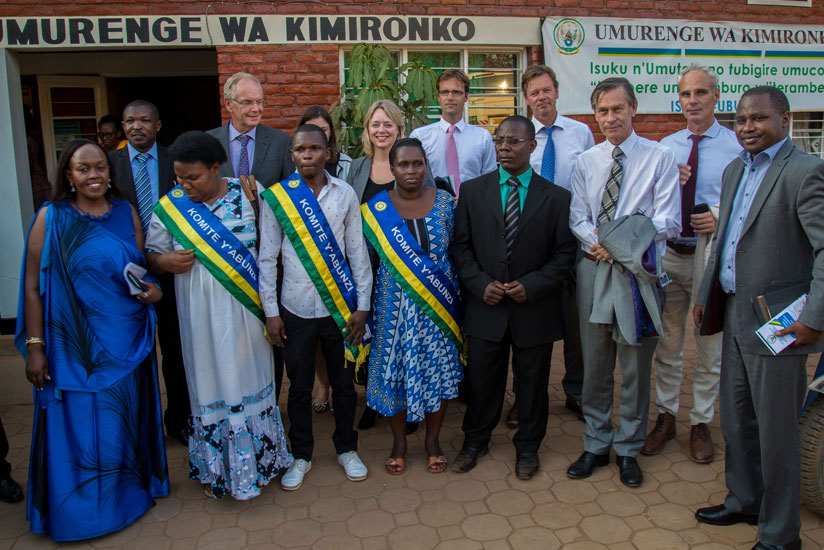Visiting Dutch lawmakers have commended the progress made in resolving land disputes and promoting of land rights.


Visiting Dutch lawmakers have commended the progress made in resolving land disputes and promoting land rights.
The visiting MPs made the commendation as they briefly interacted with officials from the Rwanda Initiative for Sustainable Development (RISD), an NGO which has worked to implement a three-year (2012-2015) project on securing land rights, local authorities and project beneficiaries. The project was funded by the Dutch government.
The interaction took place at Kimironko Sector offices in Gasabo District, yesterday.
After listening to what she considered an impressive achievement in land tenure registration, Agnes Mulder, a Dutch politician, who is member of the Christian Democratic Appeal (CDA) party, asked how she could possibly help to enhance the projects.
Mulder said: These are great results. This is what we wished could happen, that issues get resolved, and that you can move. My question is, where do you need more of our imput in this area – maybe more knowledge, or other things, because then we can debate it in our parliament.”
Annie Kairaba, the Director of RISD, said good steps were made, especially in the first three years of the project – with funding from the Dutch government – when working on training mediators [Abunzi], and that the Ministry of Justice is now taking over training and other requirements.
"Now, we want to do more research and documentation so that the Rwandan experience can be known and be replicated elsewhere, we are also looking at more engagements with mediators and other stakeholders,” Kairaba said, adding, that they are working to scale-up mediation to cover all the country’s 30 districts.
Currently, the project supports mediation services in only 11 districts.
In the last three years, she said, 335 land related issues were identified and by, end last year, 208 had been resolved by mediators instead of courts.
Raymond De Roon, the leader of the visiting Dutch delegation, asked about the frequency of cases which mediators fail to handle that are sent to courts.
Dr Jean Baptiste Rusine, the president of the mediators’ committee at Kimironko Sector, said that in the past 10 years about 300 cases, between 15 to 20 per cent only appealed and went to courts.
The second phase of a project called Securing Land Rights Project Phase 2 (SLRP 2) will be implemented between 2015 and 2018, with focus on "Securing Land Rights for Food Security.”
The project is funded by the Netherlands embassy with technical assistance from the German Development Cooperation (GIZ).
RISD signed the SLRP Phase 2 contract in July with a budget of Euro 1,000,001, covering 11 districts. The project strategically links land rights to food security, for sustainable land reform.
It is implemented in partnership with the Rwanda Natural Resources Authority (RNRA) and the Ministry of Justice in collaboration with the ministries of agriculture and infrastructure, specifically in relation to land use.
The SLRP Phase 1 was implemented between 2012 and 2014 in 11 districts, with a total funding of Euro 670,580 from the Netherlands embassy and technical assistance from the German Development Cooperation (GIZ).
It aimed at strengthening the capacity of Abunzi Committees (mediators), local leaders and the civil society in identification, analysis and documentation of land disputes. Clear understanding of land rights and effective land dispute management mechanisms through mediation without going to court contributed to peace and stability and provided time for the land use initiatives towards for food security.


